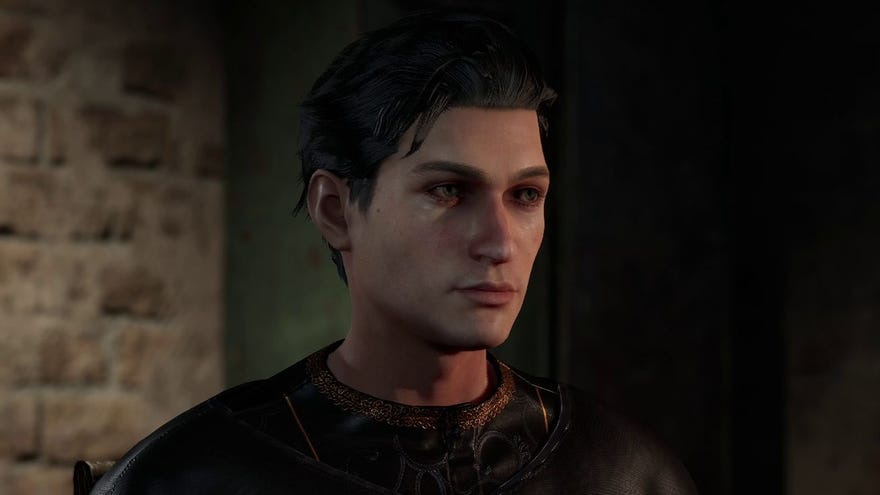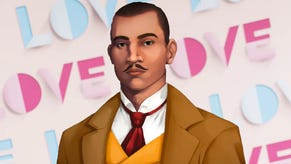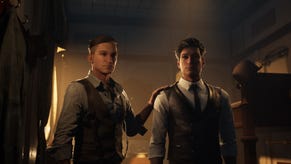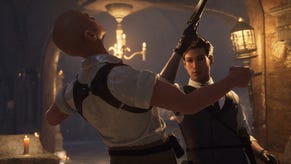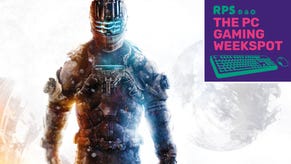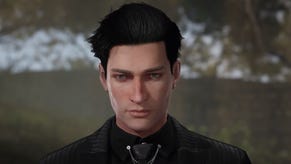Sherlock Holmes Chapter One review: the silliest thing I have ever loved
Young, fun and full of conclusions
The simple explanation of Sherlock Holmes Chapter One is a game where you embody the nascent consulting detective, aged 21, returning to Cordona, the Mediterranean island where he spent time as a child. It's a third-person puzzle adventure. You gather the evidence, cross reference it all, and then come to a conclusion on the case. Young Holmes returned to Cordona to find out how his mum died a decade ago, and is helped by his best mate Jon, this season's Creepy Watson. Boy, do they get in some scrapes along the way! Bingo, bango, there's yer preamble.
But the complex explanation is that this game, ironically, defies explanation. As I played, I oscillated wildly between thinking, "This is Frogwares' world and we're all just living in it!" and, "What is even happening, what is this, I need a ten-part documentary series that just follows the developers around because they really have a lot of explaining to do."
Sherlock (or "Sherry", as Jon calls him in a development I absolutely love) and Jon form a great partnership, both dressed like two young men on an absurd steampunk weekend LARP, just bals being pals. Sherlock is the cold, analytical prig, played to perfection as a very smug boy-man. He looks at all the evidence and does the summing up. Jon is the fun and imaginative scamp. He comes up with wild ideas and is the one who lingers to look at paintings of bums and fannies, and says something like, "Are you sure you don't like art, Sherry?"
And this partnership is a bit like Chapter One as a game.
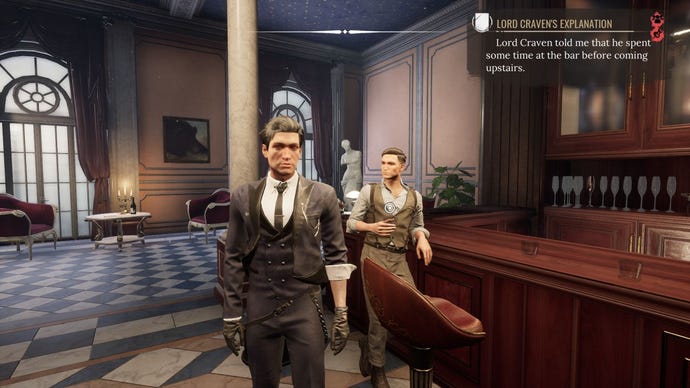
In terms of how you actually play it, this is Frogwares' best effort yet, by some margin. The devs have taken the best bits from Lovecraftian depress 'em up The Sinking City and made them less annoying. You sometimes have to look stuff up in a city archive, but it's clearly marked when you do. There are times where you need to go to a crime scene at the intersection of Mud Street and Busywork Ave., but they're less frequent, or mixed up with a bit of "opposite this big church that you can see a mile off", making it a lot more fun to navigate Cordona. There's not zero traipsing back and forth, but there's significantly less of it.
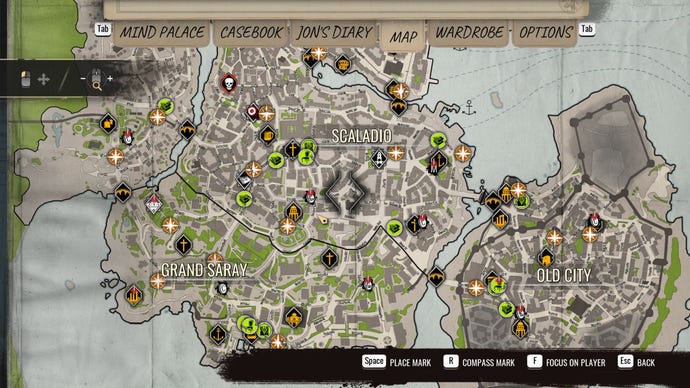
It helps that Cordona itself is just a nicer place to be in as well. It feels far more intentional in its design than the grim, waterlogged streets of The Sinking City, with different districts having appreciably different architecture and citizens. It's sunny and pretty and not just muddy or full of obviously reused door assets. I liked standing around watching NPCs being all weird, and dressing appropriately for my day's work.
The process of doing a case is a lot more fun as well. Clues you pick up from the area have little markers attached to them, indicating if you need to explore somewhere else, ask a suspect about it, interview people in the area, or do your special Sherlock Detect-o-vision to follow a trail or check for even more clues. It takes a while to get the hang of the complex language of playing the game - if you need to track a cart, for example, you can't do it unless you have pinned the piece of evidence reading "track cart" as your current active task, and this sort of thing will doubtless run you into frustrating walls early on. But you get there eventually.
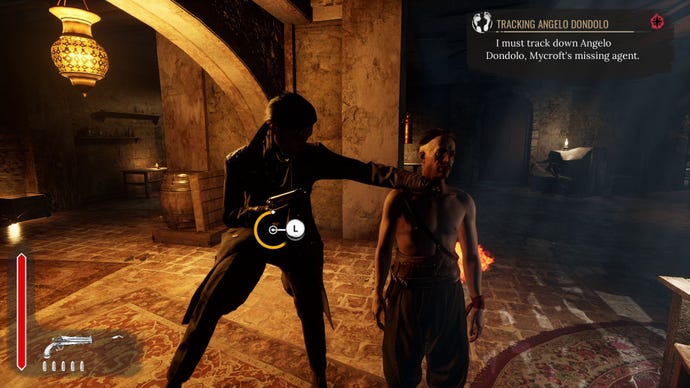
Combat in Chapter One is sort of a puzzle too, restricted to set pieces where you bullet-time aim at sacks of flour, lights, bottles etc. to disarm enemies, and then take them down with a QTE non-lethal. attack. If you kill anyone Jon is v. disappointed. This is all fine.
The landmark cases that bring you closer to finding out what happened to mumsy use your Mind Palace. This is a mental corkboard where you link evidence and create possible conclusions to the case. The side cases, though (which you can pick up either as missions from your brother, or from keeping your eyes and ears open around town), are often a lot jollier and don't use the Mind Palace. These you have to solve off-piste, with more creative thinking from the player. There was one involving a dead man in a safe that I particularly enjoyed puzzling out, despite the fact I'm pretty sure I got it wrong. In another, I had to figure out which warehouse of three a gang leader was in by listening to the workers moaning and watching what was going on. It feels like, with Chapter One, Frogwares have finally nailed the balance between hand-holding their consulting detectives, and shoving them out into a cold unfeeling world to figure everything out themselves.
And then there's the other half of the game, which is the stuff you're actually interacting with, and it is metaphorically showing its bum and blowing a raspberry. This is the half of the game where you can find an elephant guilty of murder. Where you can dress Sherlock as a vampire, for no reason. You go to an Eyes Wide Shut-style mask orgy where men are wearing like, khaki shorts and body harnesses. It's all very funny. In fact, Chapter One does a lot of stuff that is deliberately funny. Like, Jon keeps his own notebook where he either writes compliments to Sherlock when you do well, or insults when you mess things up, and with the full context of the game this is extremely hilarious and good.
But Chapter One also does a lot of stuff that, while not being actually offensive, is very stupid. In certain disguises (the wardrobe element not actually being as integral as you might think), Sherlock will "Do A Voice". The outfit called 'Slavic Gangster' is styled to look like an Adidas tracksuit. I imagine the fact there isn't a suit called 'Itsa Me, Mario' is due to Nintendo's famously litigious approach to IP protection. I do not know whether to be grateful for that or not.
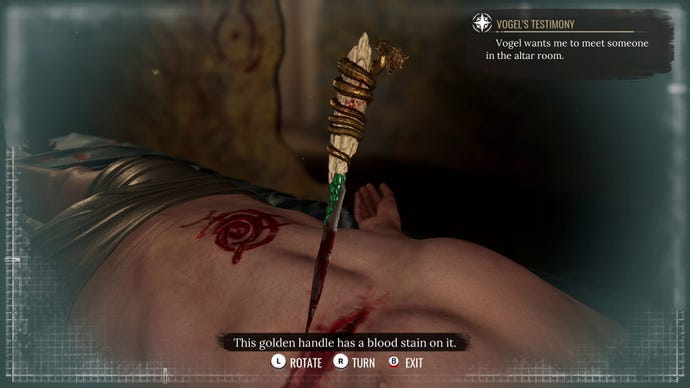
But there's more. Sometimes an NPC will be marked as "Irish Pickpocket" but speak with a strong English accent. The visual deduction Sherlock does is also classic head-measurer nonsense, like looking at someone's hands and deciding they are a pickpocket partly on the basis that their fingers are long. In one instance, Sherlock looks at an assumed male suspect and goes "wide hips, no Adam's apple, [Matt Berry voice] you're a woman!" - but is clear in his deduction that he see's no need to reveal this to anyone else. This revelation has no significant bearing on the case, but Frogwares go there all the same.
It does this sometimes: inserting ways for Sherlock to be an extra good boy. Another case involves a woman killing off the group of men who'd assaulted her, and you can let her go, in which case Jon is very approving of Sherry. One main case involves finding a refugee woman who had been raped, and deciding whether to help her and her child, help every other refugee apart from her (?) or arrest the rapist. Yet another time we discovered a childhood friend we thought we'd helped escape prison had been beaten in his cell by the cops. Sherlock was big mad about this.
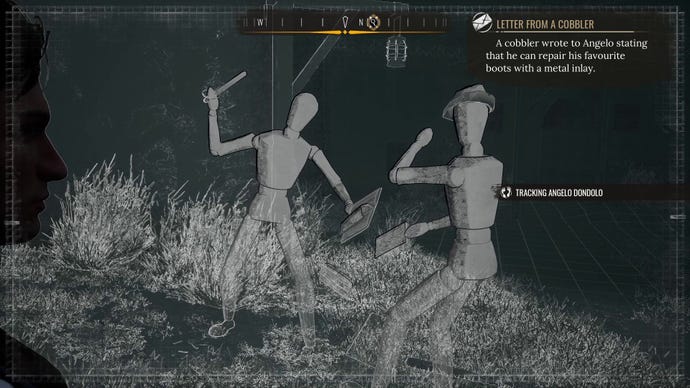
There's a disclaimer about how the game depicts mistreatment of minorities that was wrong at the time, and still wrong now, and so on (I think it's actually the same one from The Sinking City, a game that featured the actual KKK). But it still just reminds me of the time I played a TRPG with someone who made up NPCs in an abusive situation for the sole purpose of saving those NPCs and, I dunno, looking good in a fictional circumstance they themselves had created. Why not make up some of those NPCs as cool people having a rad as fuck time, being all awesome and needing your help for a good reason? This is a game in which I made an inflatable sex doll for an elephant!
Sherlock Holmes Chapter One is somehow both the best game that I have ever played while also being as smart as a bag of rocks. What happened to Mrs Holmes is, on many levels, best left unsaid, but it is almost exactly a literal view of that Charlie Day conspiracy board image: a complex web of clues and plotting that is impressive in its execution, yet embedded with idiocy. It is the silliest thing I have ever loved and enjoyed; the best thing I have ever ridiculed. I wish it every success while also hoping that it is screencapped in a million joke tweets. I cannot wait to finish all the side cases I have left over, and I will laugh at every two out of three of them. I cannot explain it more than this, reader. Which is why I am not a real detective. And also why Sherlock Holmes isn't, either.
